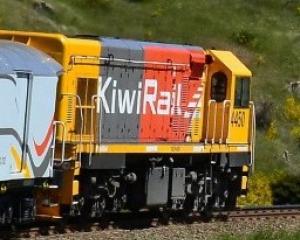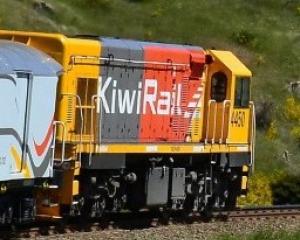It is very clear that the Government is little interested in promoting local prospects for a tender to build electric railcars for Auckland, despite assertions from a combination of political parties, trade unions and other interested groups that it should.
Although the Minister of Transport is on record as saying the matter is for the New Zealand Railways Corporation ("KiwiRail") to decide, he has also said a local tender would be "a step too far" - as clear a negative signal as could be expected to the corporation from its nominal owner.
That will be disappointing news to workers at KiwiRail's Hillside workshops in Dunedin, and raises yet again the question of whether governments should get involved in the enticing prospect of short-term job creation.
That is what the combined group's proposal amounts to, for there has been little, if any, public analysis of the long-term risks to taxpayers. It is at least germane to the argument that Wellington's new electric trains are being bought from Korea, and KiwiRail purchased 20 locomotives last year from China.
The Dunedin City Council and the Rail and Maritime Transport Union commissioned a report by Business and Economic Research Ltd, which said the economy would be $250 million better off and more than 1200 jobs created if the contract was carried out in this country.
It is, going by news reports, somewhat unclear just who the company approached within KiwiRail to determine whether all the work involved in the contract could be carried out in this country before the contract deadline, or what the prospects of success for KiwiRail could be should it win, complete the contract, then seek further internationally competitive tenders - which is what would have to be done in order to sustain a skilled workforce and the substantial infrastructure investment.
However, KiwiRail's chief executive has been reported as saying it would be very unlikely the company would tender for the work because "it is hard to see any way we could be genuinely competitive".
Given the recent history of the various management and ownership structures of our rail system, many would argue that it is reasonable - indeed essential - the company makes its decisions on a properly commercial basis, free from either political pressure or state subsidy.
Our rail system can, however, be considered a special case, an "essential industry" for which no future is likely without state ownership, because there is no competing rail system. That it has struggled to pay its way without help in one form or another has been amply demonstrated over its history, especially in the past 25 years.
Is this the basis for the political campaign to have the contract to build the 13 electric locomotives and 114 cars in this country? If so, then it is a premise based on an unusual concept of commercial reality.
To the extent that it is good for a local campaign to be advocating job creation, especially in Dunedin's heavy engineering industry which has a long and creditable record of success, it is certainly worthy of consideration, but to be fair, it also has to be based on commercial realism, not sentiment or ideology.
After all, that is what has operated at the Hillside workshops with such success in recent times.
This, at least, seems to be in the minds of KiwiRail's managers, for the company's own capability report can be interpreted as outlining its two workshops' ability to carry out sub-contracting and maintenance activities rather than attempt the full contract.
It is likely the main tender will be awarded to an experienced international Asian supplier on grounds of cost and time delivery alone: and the Government will clearly require a role in that determination since it is putting up the $500 million the corporation needs to fund the project.
However, there are other options than a full bid worthy of consideration. Joint ventures on a similar or even larger scale have been attempted here, but the success rate has been mixed at best - witness the Project Protector debacle.
Nevertheless, this is an avenue that must be explored on behalf of the workshops with a preferred contractor. More likely, however, is the exploration of such sub-contracting and maintenance work for Hillside as might be available.
After all, the construction of the trains is but a one-off matter; they will have to last for 15 to 20 years or more, as will the tracks they will run on. Here, at least, is the prospect of long-term investment and job creation for which Hillside and others are well-suited.




